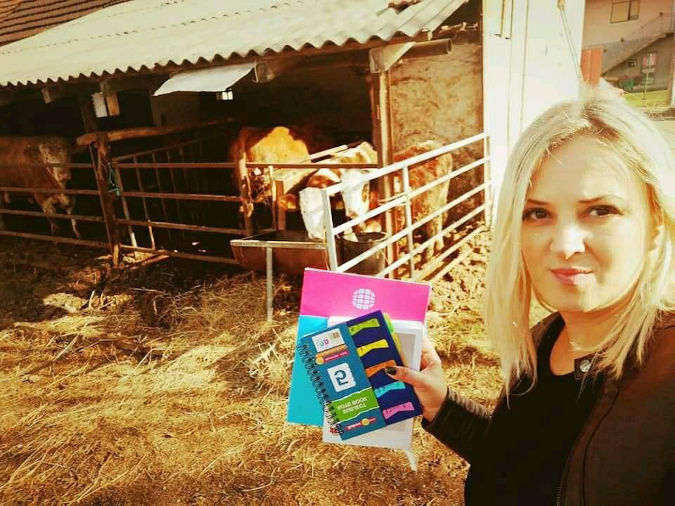In the words of Jelena Ruzic: “Economic losses will be tremendous, and women farmers do not even dare to calculate them now”
Jelena Ruzic is a passionate advocate for women’s rights in the Kolubara District, in western Serbia. She is the founder of the Women’s Association of Kolubara District, which promotes the political participation of women and supports their economic empowerment through education and networking. In light of the coronavirus pandemic, Ruzic and 122 women involved in a UN Women-run, EU-funded project are asking decision makers to consider the effects of the COVID-19 lockdown on individual women agricultural producers, and protect them.Date:

The COVID-19 pandemic and subsequent declaration of the state of emergency in Serbia forced us to adjust our activities, but also to find ways to contribute to our local community. First, we tried to help with the most urgent thing, which was the lack of protective equipment. We immediately engaged our social enterprise (from the Association) and made fabric masks for those on the COVID-19 front line – police, public health workers and civil servants.
Then, just weeks after the state of emergency was declared, we could already feel economic implications. In our daily communication with women farmers, we learned that agriculture is facing enormous consequences and that individual producers are now invisible to decision-makers. Rural women are among the most vulnerable groups in Serbia, and the discontinuity of production caused by COVID-19 and the imposed lockdown will cause long-term harm, especially on women’s income.
Farmers lost their market for sales of products overnight – green markets are closed; public transport is shut down; and alternative couriers do not accept to transport food. What is particularly challenging is a total ban on movement for people over the age of 65 now, during seeding time [given that many women farmers are over that age]. Buyers have used the opportunity, in the absence of anti-dumping measures, to drop their prices by 30%. This has especially affected small milk producers who are selling milk at prices cheaper than water! Farmers are faced with a difficult dilemma: sell products that are grossly underpriced, or toss them. Economic losses will be tremendous, and women farmers do not even dare to calculate them now, as the results will certainly be defeating.
To address all these issues, we gathered 122 women working on a UN Women project. Together, we drafted an open letter and sent it to the Serbian Minister of Agriculture, asking for protection for individual producers, suggesting alternatives for public transport and sales, as well as the withdrawal of sanctions for movement [for famers, as essential services], and seeking [improved communication with and] adequate protection from the widespread abuse from buyers.
Although the official response from the Minister has yet to come, we have noticed that some of the measures we suggested have been taken into account, such as the creation of an online platform to connect producers and buyers. In the meantime, the Government has prepared a package of measures aimed at economic recovery, but they do not fully meet the needs of individual agricultural producers.
Even though there is barely room for civic engagement during the state of emergency, we will continue fighting for women individual agricultural producers. We will try to reach decision-makers and have them put our requests on the agenda to include women in the design of measures in these uncertain times.”